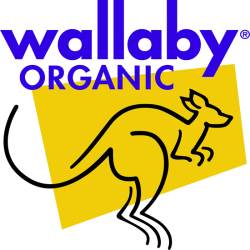 A cane juice labeling class action lawsuit filed against Wallaby Yogurt Co. has been halted by the presiding California federal judge agreeing with the company’s argument that the court should wait for U.S. Food and Drug Administration’s re-evaluation of labeling ingredients as “evaporated cane juice” instead of “sugar.”
A cane juice labeling class action lawsuit filed against Wallaby Yogurt Co. has been halted by the presiding California federal judge agreeing with the company’s argument that the court should wait for U.S. Food and Drug Administration’s re-evaluation of labeling ingredients as “evaporated cane juice” instead of “sugar.”
U.S. District Judge James Donato stayed this cane juice labeling class action lawsuit on Nov. 5 and also granted the food manufacturer’s motion for reconsideration. Wallaby had submitted this motion for reconsideration in mid-September, arguing the cane juice labeling class action lawsuit could not proceed because any court decision would be undermined pending the conclusion of the FDA’s re-evaluation of evaporated cane juice labels.
Wallaby claims that lead plaintiffs Frank Morgan and Janet Hood were able to escape a motion to dismiss this cane juice labeling class action lawsuit by relying on the 2009 FDA guide which stated the use of the term evaporated cane juice “falsely suggests the sweeteners are juice.” However, because the FDA announced in March of this year that it was reevaluating its previous guidance regarding the term evaporated cane juice, this Wallaby class action lawsuit may need to wait until the agency comes to a conclusion on this labeling term.
Wallaby Yogurt invoked the primary jurisdiction doctrine, a move that allows the court to defer to an federal agency, stating, “Here, the FDA has jurisdiction over food labeling, and has commenced a formal regulatory process to determine the precise issue at stake in this case. Accordingly, this court should dismiss or stay this lawsuit and permit the FDA to conclude its regulatory review of the term ‘evaporated cane juice.’”
In its motion to stay the cane juice labeling class action lawsuit, the yogurt company also pointed out to the court that eight other judges in the California court district have stalled similar cane juice labeling class action lawsuit in light the FDA’s investigation.
Additionally, while four of those federal judges had rejected primary jurisdiction doctrine motions, these same judges reconsidered their rulings in light of the FDA “backing away” from their initial guidance on the labeling term.
Plaintiffs Morgan and Hood filed this Wallaby Yogurt cane juice labeling class action lawsuit in January 2013, claiming the food company tricked them and other consumers into believing their brand name yogurt was healthier than competing brands. Because they used evaporated cane juice instead of sugar or other sweeteners, Wallaby Yogurt represented its product as a healthy food and, therefore, worth the premium price paid by consumers.
In their cane juice labeling class action lawsuit, Morgan and Hood allege that because evaporated cane juice and sugar are essentially the same ingredient, Wallaby Yogurt violated California’s Sherman Law, which requires food companies to label food ingredients using common terms.
Plaintiffs Frank Morgan and Janet Hood are represented by Ben F. Pierce Gore of Pratt & Associates.
The Wallaby Yogurt Cane Juice Labeling Class Action Lawsuit is Morgan, et al. v. Wallaby Yogurt Co. Inc., Case No. 3:13-cv-00296, in the U.S. District Court for the Northern District of California.
ATTORNEY ADVERTISING
Top Class Actions is a Proud Member of the American Bar Association
LEGAL INFORMATION IS NOT LEGAL ADVICE
Top Class Actions Legal Statement
©2008 – 2025 Top Class Actions® LLC
Various Trademarks held by their respective owners
This website is not intended for viewing or usage by European Union citizens.














